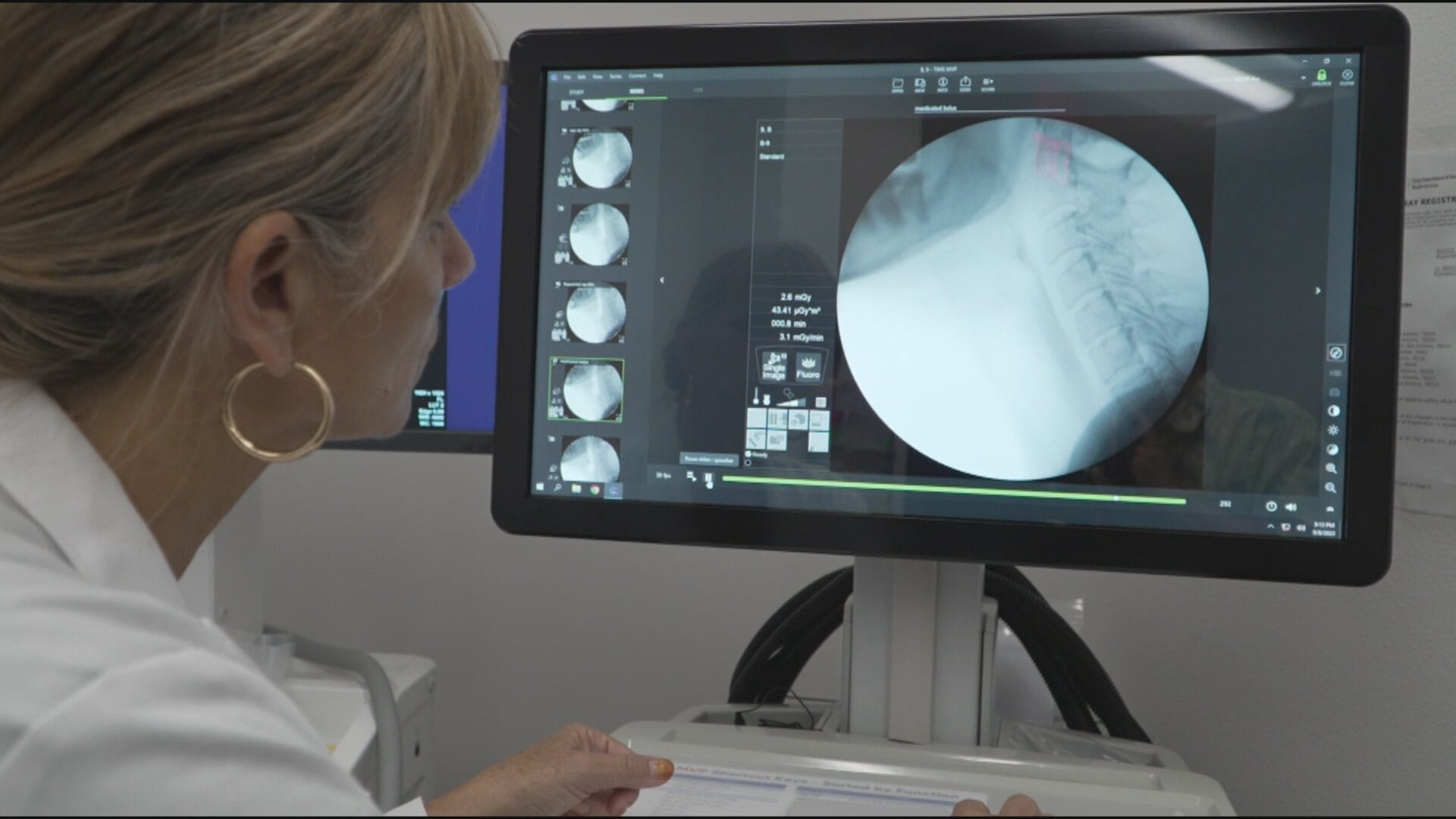Health Spotlight | Relearning the art of swallowing
SAN ANTONIO, Texas (Ivanhoe Newswire) — We swallow 600 times a day, once a minute while awake and three times an hour while asleep, and never notice until we struggle with choking.
The condition is called dysphagia. Early rehabilitation is critical to avoid food accidentally getting into the lungs, pneumonia, malnutrition, and severe illnesses.
“Your esophagus is tonically closed, so, it only opens when you swallow,” said Giselle Carnaby, a professor at UT Health Science Center in San Antonio, Texas.
But for 15 million Americans with dysphagia, throat muscles weaken, the hole doesn’t close and they choke on saliva or food.
“And as the muscular weakness in the upper end of the swallow starts, they start to squeeze less, push less, move less, and it becomes cyclical and you get what’s called a diffuse atrophy,” Carnaby said.
Susan Craig has Parkinson’s and manages muscle strength with boxing and stays active by traveling. But just like body muscles, weak oral muscles lead to real problems.
Carnaby said, “We know that a good 40% of the general elderly population will experience some of these difficulties.”
Craig is in Carnaby’s rehab — swallowing more frequently, and mastering meds by putting pills in applesauce for easier consumption.
“She’s teaching you how to swallow. It has nothing to do with, like, your bite size and chewing, and all that is fine,” Craig said.
If you experience pain or difficulty swallowing, Carnaby advises you to consult a swallowing specialist, swallow more frequently to build strength, manage underlying conditions like acid reflux and COPD.
Otherwise, “you become less mobile, you become more fragile, you’re then more susceptible to diseases because you don’t have a healthy immune system.”
Other treatment techniques include neurostimulation, especially for stroke patients with dysphagia, who wage a daily struggle with eating.
Health Spotlight is presented by Community Health Network. Contributors to this news report include Donna Parker, producer; Kirk Manson, videographer; and Roque Correa, editor.



